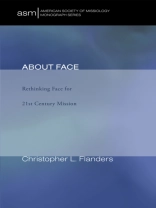’For Thais, face is a fact, ’ writes Flanders. However, 'whether in theology, evangelism, or issues involving sin, salvation, or atonement, Thai Christians and missionaries alike seem either uninterested in or possibly incapable of addressing issues related to face. This glaring incongruity between the value of face for Thais and the lack of intentional engagement within the Thai Christian community is deeply troubling.
'Surely, such a lack of careful attention to face is a dangerous posture. Uncritical views of face, furtively attaching to the theology of the Thai church, are potentially detrimental for its life and mission. Such seems to be an unavoidable situation without proper attention to face. Additionally, to ignore face is to run the risk of missing valuable cultural resources, implicit in the Thai experience of face, for the critical task of authentic Thai theological reflection.
'This lack of engagement with face raises critical issues with which we must wrestle. How is it that such a central sociocultural issue has not been a more significant part of the Thai Christian vocabulary or experience? How pervasive are these negative attitudes regarding face? What lies behind them? Might this lack of self-conscious engagement with face have any relationship to the persistent Thai perception of Christianity as a foreign, Western religion? How should Christians understand this notion of face and how it relates to the ways we understand and proclaim the gospel?’
O autorze
Christopher L. Flanders is professor of missions in the Graduate School of Theology at Abilene Christian University, Abilene, Texas. He is the author of About Face: Rethinking Face for 21st Century Mission (2011) and a member of the executive leadership team of the Honor-Shame Network.







![Pokrywa Brian Schrag & Julisa Rowe: Community Arts for God's Purposes [Chinese] 貼近神心意的社群藝術 Pokrywa Brian Schrag & Julisa Rowe: Community Arts for God's Purposes [Chinese] 貼近神心意的社群藝術](https://static.worldofdigitals.com/thumb_webp/740/9781645083740.webp)




